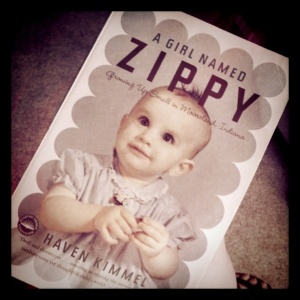Tag Archives: Gone with the Wind
Gone With The Wind Picnic
GwtW discussion questions
Our Gone with the Wind discussion is next Thursday, July 28th. Here are a few questions and topics to get you thinking…
1. How do Gerald and Ellen influence Scarlett’s character? What traits does she inherit from each?
2. In what way does Scarlett represent the Old South and in what way does she represent the New South? How does her transformation reflect the changes the South undergoes during and after the Civil War?
3. Compare and contrast Ashley and Rhett. What cultural attitudes or ways of life do they embody?
4. What role does Melanie play in the novel? How and why does her relationship with Scarlett change over time?
5. How are slavery and black people depicted in Gone with the Wind? Can the novel be labeled racist?
6. What values and lifestyles do Tara and Atlanta represent? How does Scarlett change as a result of her interactions with these two settings?
7. Discuss some of Scarlett’s unscrupulous actions—for instance, her employment of convicts in the mill. How does she justify these actions? How do other characters react to her? Does the narrator judge her, defend her, or remain objective?
Provided the heat doesn’t move us indoors we’ll be meeting at 7:00pm at Geist Park, Fortville. (Be sure to RSVP on facebook so I know to contact you if we move locations.)
May’s meeting seems like so long ago! I’m anxious to get back together and talk about this classic book! Hope you all are having a great summer and staying cool!
Don’t forget to bring a salad to share, as well as your own dishes. I’ll provide drinks.
See you in a week!
The gift of storytelling
Winning a Pulitzer Prize for our current book club novel: Gone With The Wind, her only published novel, she is known by most. Gone With The Wind is on the best-seller list having sold 30 million copies!
Born November 8, 1900 in Atlanta Georgia, she grew up hearing stories of the Civil War which laid the ground work for this masterpiece early on in her life.
In 1922 she took the next step leading to her literary fame when she began writing for the Atlanta Journal, a very uncommon career for a female in that time. In her short time a the paper (’22-’26) she became their leading feature writer.
 Believing a husband should support the wife she quit in 1926 to return home and to her fiction when her husband was financially able to support them. Her fiction was the manuscript that would introduce us to Scarlett and Rhett and the war from the Southern point of view. She worked on her novel for roughly 10 years.
Believing a husband should support the wife she quit in 1926 to return home and to her fiction when her husband was financially able to support them. Her fiction was the manuscript that would introduce us to Scarlett and Rhett and the war from the Southern point of view. She worked on her novel for roughly 10 years.
A very rough draft was first read by an editor at Macmillian Publishing, Harold Lantham, void of a first chapter, but he new the gem it would become. She, on the other hand, was reluctant to think it would amount to anything, but Lantham promptly sent her a check to encourage her to finish.
Her fame grew quickly as the book was published on June 30, 1936, then winning the Pulitzer Prize in 1937 and the movie released in 1939.
Mark your calendars and join us at 7:00 Thursday July 28th at Geist Park for a picnic and discussion of this epic novel! Bring a salad to share, your own dishes and your lovely selves!
If the past has anything to teach me, the summer goes fast… so I’ll see you all in a few short weeks!!
Happy Reading,
Sarah
Walking Contradiction: An Introduction to Gone with the Wind
From Gone with the Wind Chapter Six:
She heard the soft muffled sound of his footsteps dying away down the long hall, and the complete enormity of her actions came over her. She had lost him forever. Now he would hate her and every time he looked at her he would remember how she threw herself at him when he had given her no encouragement at all… And the thought stung her to a new rage, rage at herself, at Ashley, at the world. Because she hated herself, she hated them all with the fury of the thwarted and humiliated love of sixteen. Only a little true tenderness had been mixed into her love. Mostly it had been compounded out of vanity and complacent confidence in her own charms. Now she had lost and, greater than her sense of loss, was the fear that she had made a public spectacle of herself… Was everyone laughing at her? She began to shake at the thought.
Her hand dropped to a little table beside her, fingering a tiny china rosebowl on which two china cherubs smirked… She picked up the bowl and hurled it viciously across the room to toward the fireplace. It barely cleared the tall back of the sofa and splintered with a little crash against the marble mantlepiece.
“This,” said a voice from the depths of the sofa, “is too much.”
Nothing had ever startled her or frightened her so much, and her mouth went too dry for her to utter a sound. She caught hold of the back of the chair, her knees going weak under her, as Rhett Butler rose from the sofa where he had been lying and made her a bow of exaggerated politeness…
“Sir, you should have made known your presence.”
“Indeed?” His white teeth gleamed and his bold dark eyes laughed at her…
Her temper was beginning to rise again at the thought that this rude and impertinent man had heard everything–heard things she now wished she had died before she ever uttered.
“Eavesdroppers–” she began furiously.
“Eavesdroppers often hear highly entertaining and instructive things,” he grinned. “From a long experience in eavesdropping, I–“
“”Sir,” she said, “you are no gentleman!”
“An apt observation,” he answered airily. “And, you, Miss, are no lady.”
This scene early in Gone with the Wind is one of my favorites in both the book and the movie. Not only do we get a great preview of what many of Rhett and Scarlett’s interactions are going to be like throughout the story, but we get a lot of insight into their characters.
I always enjoyed the movie Gone with the Wind–for nerdy reasons like history is one of my favorite subjects and that it is a groundbreaking example of epic filmmaking–but it was when I read the book for the first time that I really fell in love with the story. It is the story of Scarlett O’Hara, a complicated character, an anti-hero of sorts, full of contradictions and powerful emotions–at the same time driven by love and hate, selfish ambition and loyalty, the desire to be a great lady like her mother and the need to shirk old societal conventions in order to rebuild a life in the South destroyed by the Civil War. The book lets us read Scarlett’s thoughts and gives us insight into her motives that we can only get a glimpse of in the movie. Margaret Mitchell’s brilliant writing makes Scarlett a character you’ll find yourself rooting for as she drives you crazy at the same time.
Please Note: Like our last book, I have to issue a disclaimer about some of the language, but for different reasons. The word d@*n (if you catch my drift) is used by some of the characters, and because it’s set in Georgia during the Civil War and Reconstruction when it would have been a common term, there is use of the “n-word” as well. In my opinion, it doesn’t detract from the story or the novel as a whole, but I wanted to be sure no one has any surprises–especially for those of you who might be listening to the audiobook with kids around. 🙂
Gone with the Wind is a long book, but that’s why we’re taking two months to read it! You still have plenty of time, and it’s a great summer read. We’ll be meeting July 28 at Geist Park for a picnic. I really hope you all enjoy meeting Ashley, Melanie, Aunt Pittypat, Mammy, Rhett, and of course, Scarlett O’Hara.
Happy reading!






